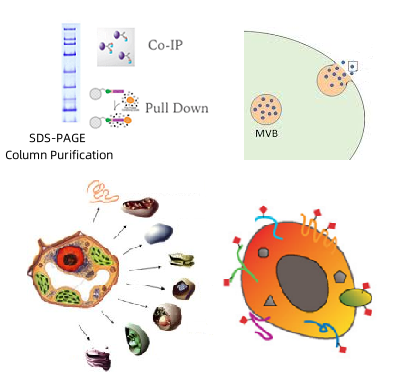Proteomics Service of Different Sample Types
Common samples used in proteomics include cell samples, tissue samples, and body fluid samples. Cell samples include animal cells, plant cells, and microbial cells such as fungal cells and bacterial cells. Tissue samples include animal tissues and plant tissues. Body fluid samples include serum, plasma, and urine. In addition, samples used in proteomics research can also be derived from protein gel spots, gel strips, IP or Co-IP samples, paraffin-embedded samples, exosomes, subcellular fractions, and so on. In short, anything containing a proteome can be used as a sample in proteomics. However, different samples may require different preparation methods when used for proteomics research. Sample preparation mainly requires avoiding protein contamination and using reagents and solutions compatible with mass spectrometry for subsequent proteomics research.

Figure 1. Sample Proteomics
Services at MtoZ Biolabs
1. Exosome Proteomics
2. Cell Surface Proteomics
3. Paraffin-embedded Sample Proteomics
4. Subcellular Proteomics
5. Plant Proteomics
6. Serum Proteomics
7. Cell Proteomics
8. Membrane Proteomics
MtoZ Biolabs, an integrated chromatography and mass spectrometry (MS) services provider.
Related Services
How to order?







